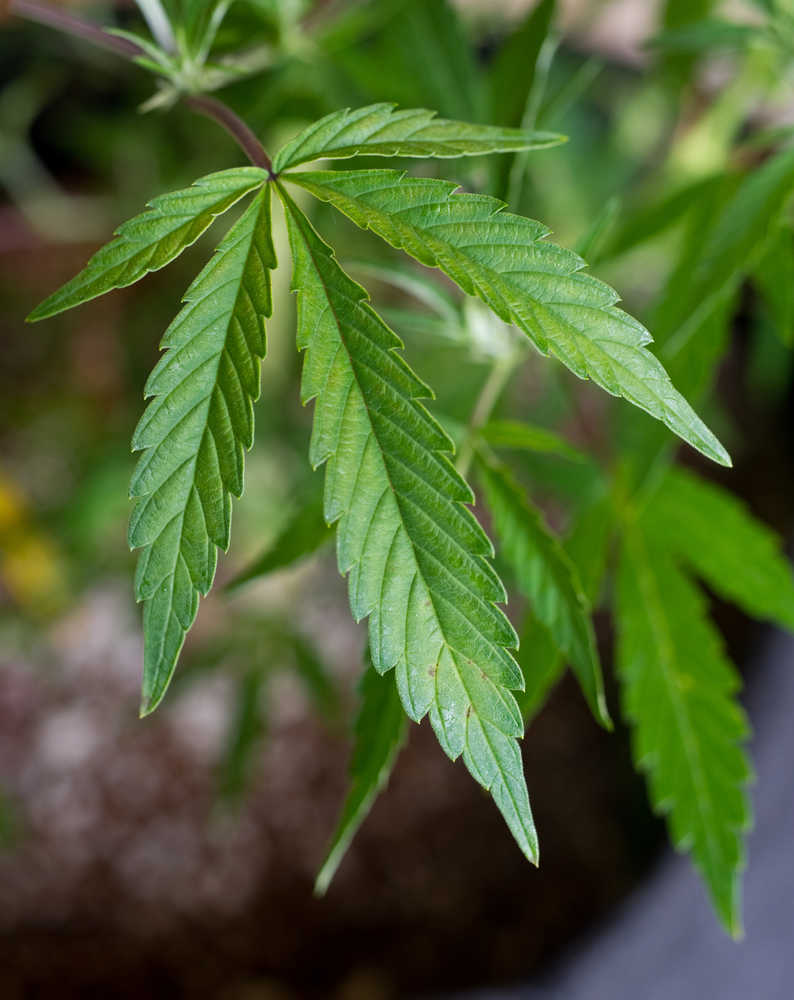The City of Ketchikan will not prohibit retail marijuana businesses within city limits.
The Ketchikan City Council, by a 3-2 count at its meeting Thursday night, voted down an ordinance in second reading that would have temporarily prohibited such businesses.
Council members Judy Zenge, KJ Harris and Julie Isom voted against the ordinance, while council members Bob Sivertsen and Dick Coose voted in favor. Council members Dave Kiffer and Janalee Gage were not at the meeting. Kiffer voted against the ordinance at the council’s Jan. 7 meeting but had previously supported prohibition, while Gage voted in favor of prohibition both earlier this month and in late 2015.
The council, at its Jan. 7 meeting, narrowly approved the ordinance’s first reading. Council members were split in a 3-3 tie — Sivertsen, Coose and Gage voted for the ordinance, with Zenge, Harris and Kiffer voting against. Mayor Lew Williams III, a co-publisher of the Ketchikan Daily News, cast the tie-breaking vote in favor of the ordinance.
The proposed ordinance contained a sunset provision, meaning that if approved, it would have remained in effect through Sept. 30 “unless sooner terminated or extended,” according to the ordinance — allowing the council to temporarily prohibit retail marijuana businesses until the state finalizes its regulations. Williams sought the temporary ban after the council voted in December to defer a decision on permanently prohibiting retail marijuana sales until after the state set its regulations.
The vote Thursday came after almost an hour of public comment, with more than a dozen people speaking on the marijuana issue. All but one person was in favor of allowing retail sales, for reasons that included: the fact that state and local votes approved Ballot Measure 2 — which legalized personal possession and use of marijuana by those over 21 as well as commercial sales — in the November 2014 general election; that marijuana is already here and legalizing sales will mean professional testing and safer products; that keeping sales illegal would fuel the black market; that allowing retail businesses will generate tax revenue; and because of the medical properties of marijuana.
Sivertsen made the motion to approve the ordinance on second reading. He said before Thursday’s vote that, while he doesn’t dispute the medical benefits marijuana can have, he’s against allowing sales in part because marijuana is still classified by the federal government as a Schedule I controlled substance.
If the prohibition ordinance had passed, Sivertsen said he intended to put the issue of whether to allow retail sales on the ballot for voters to decide.
Isom, in December, voted in favor of prohibition but then asked the council to reconsider the issue.
“I’m not going to base my decision (regarding prohibition) on the tax dollars that we’re going to get,” Isom said Thursday. “I’m not going to base my opinion on the medical benefit that some people will get. And I’m not going to base my decision on my personal moral standard. But, in my opinion, the people did decide … they decided to move forward on it, and that’s why I’m going to vote this (ordinance) down.”
Harris said he was unsure what would happen if the council voted down prohibition.
City Attorney Mitch Seaver said the city could look at drafting a license protest ordinance, similar to the Ketchikan Gateway Borough and the city’s current alcohol license process.
“Assuming this temporary ban doesn’t pass in second reading, the next thing I think to do would be to bring back an ordinance that sets out the parameters of a public protest, which I imagine will look a lot like the borough’s and a lot like our alcohol license process,” Seaver said.
Harris, later in the meeting, said he intends to research the marijuana issue further.
“I wanted to let everybody know that I’m going to Seattle (in February),” Harris said. “I’m going to spend a week in Seattle doing marijuana research, because I care about you guys.”
“I won’t ask what kind of research,” replied Williams after a brief round of laughter.

